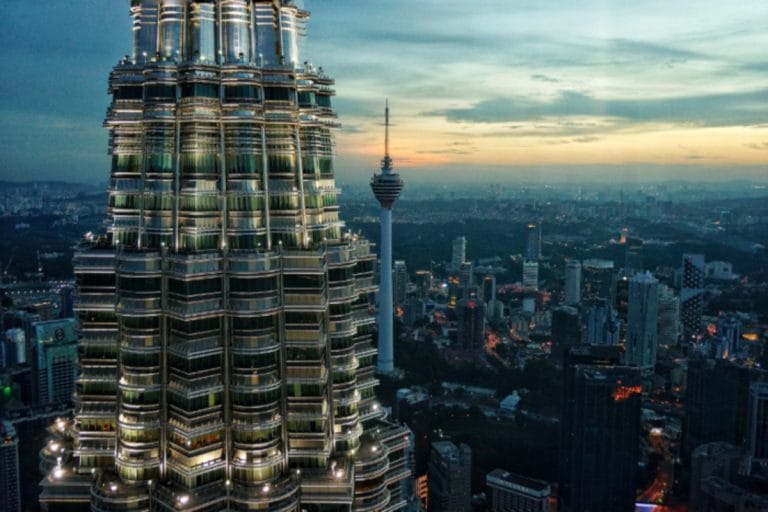🎧 Listen to This Article
For global entrepreneurs and investors, launching a startup isn’t just about innovation — it’s about strategic jurisdictional choices that can shape everything from capital efficiency to long-term wealth preservation. Asia presents an exceptional opportunity, but which country offers the most favorable tax environment for startups?
Below is a breakdown of Asia’s leading and emerging startup jurisdictions through a tax-first lens.
1. Singapore – The Benchmark for Tax-Efficient Startup Hubs
Singapore consistently ranks as the most tax-optimized jurisdiction for founders and international businesses in Asia. It combines legal clarity, banking stability, and structured tax relief with regional access.
Key Tax Advantages:
- Corporate tax: Flat 17%, often lowered by incentives (partial exemptions, startup tax exemptions, and R&D rebates).
- Capital gains: 0% – a critical edge for founders planning future exits.
- Personal income tax: Progressive, peaking at 24%, with generous reliefs.
- No dividend withholding tax.
- Attractive relocation visas: EntrePass for founders and GIP for investors.
Singapore also boasts an extensive tax treaty network and no tax on foreign-sourced income if not remitted, making it ideal for structuring global operations.
Singapore Budget 2025: What the Corporate Tax Rebate Means for Your Business
2. Hong Kong – Territorial Tax and Offshore Structuring
Hong Kong operates a pure territorial tax system, meaning profits generated offshore are not subject to tax — making it a favorite for entrepreneurs with international clients.
Tax Profile:
- Corporate tax: Two-tiered – 8.25% on the first HKD 2M (~USD 250K), then 16.5%.
- Capital gains: 0%.
- No VAT, no GST, no sales tax.
- Personal income tax: Maxes out at 15% with allowances.
- No dividend or interest withholding tax.
This makes Hong Kong particularly attractive for businesses in consulting, digital services, and finance—especially those who can structure operations to earn offshore income.
Hong Kong 2025 Advanced Manufacturing Strategy: Investments, Jobs, and Talent Development
3. Malaysia – A Hybrid Model with Niche Tax Incentives
Malaysia’s mainstream tax system isn’t as aggressive as Singapore or Hong Kong, but strategic use of Labuan, a special offshore zone, creates compelling opportunities.
Standard Tax Framework:
- Corporate tax: 15% (on first MYR 150K), then 24%.
- Capital gains: Exempt for individuals; select CGT for real property gains.
- Personal income tax: Up to 30%.
Labuan Jurisdiction:
- Corporate tax: 3% on net profits (for trading companies).
- No capital gains tax.
- Reduced compliance requirements and access to Malaysia’s DTA network.
Malaysia Digital (formerly MSC Malaysia) also offers tax holidays to qualifying startups in tech and innovation sectors.
Top Residence Options for Crypto Investors Seeking Tax Benefits
4. Thailand – Competitive Incentives and Investor Visas
Thailand is emerging as a low-cost, mid-tier tax jurisdiction with tailored incentives for foreign founders.
Key Points:
- Corporate tax: Standard 20%, but Board of Investment (BOI) incentives can reduce or eliminate this for up to 8 years.
- Capital gains tax: None on most personal asset disposals.
- Personal income tax: Ranges up to 35%, but exemptions exist under long-term resident (LTR) visa schemes.
- Smart Visa: Streamlined visa with work permission and tax benefits for founders in tech and innovation.
Although not as globally efficient as Singapore or Hong Kong, Thailand’s startup-friendly visa and tax programs make it suitable for entrepreneurs prioritizing lifestyle and market access.
Thailand Introduces Tax Incentives to Stimulate Equity Market Investment
5. South Korea – High Taxes but Strategic Market Entry
South Korea isn’t a tax haven — far from it — but its appeal lies in tech depth and domestic demand.
Tax Landscape:
- Corporate tax: Progressive – from 9% to 24%.
- Capital gains: Taxed.
- Personal income tax: Progressive – max 45% plus surtaxes.
Despite the high tax burden, South Korea offers:
- Government funding and VC support for high-tech startups.
- Specific startup visas (D-8, D-10-2) to ease entry for foreign founders.
For capital-intensive, R&D-driven ventures seeking local market presence, Korea offers long-term upside — albeit without short-term tax relief.
South Korea’s Estate Tax Reforms: A Shift Towards Inheritance Tax
Conclusion: The Best Tax-Friendly Jurisdiction Depends on Strategy
| Country | Corp Tax | Cap Gains | Personal Tax Top Rate | Startup Incentives | Best For |
|---|---|---|---|---|---|
| Singapore | 17% | 0% | 24% | Strong (Startup SG, GIP) | Global scaling, tax efficiency, residency |
| Hong Kong | 8.25–16.5% | 0% | 15% | Territorial taxation model | Offshore structuring, finance, services |
| Malaysia | 15–24% | 0%* | 30% | Labuan, Malaysia Digital | Low-cost ops, regional access, hybrid model |
| Thailand | 20% | 0% | 35% | BOI, Smart Visa, LTR Visa | Cost-sensitive startups, regional gateway |
| South Korea | 9–24% | Taxed | 45% | Visa + R&D VC incentives | Deep tech, engineering-driven ventures |
(*Labuan and individual asset gains may be exempt)
Final Word: Align Tax Strategy with Your Business Vision
Taxation is not just about savings; it’s about structuring optionality, building long-term wealth, and unlocking residency pathways. For founders and HNWIs, the “best” country in Asia will depend on:
- Your capital strategy
- Operational base vs. holding structure
- Exit planning (M&A or IPO)
- Residency and lifestyle preferences
If you’re ready to start optimizing globally, structuring your startup around the right jurisdiction is the most critical step you can take.
For further details, clarification, contributions, or any concerns regarding this article, please get in touch with us at editorial@tax.news. We value your feedback and are committed to providing accurate and timely information. Please note that our privacy policy will handle all inquiries.



